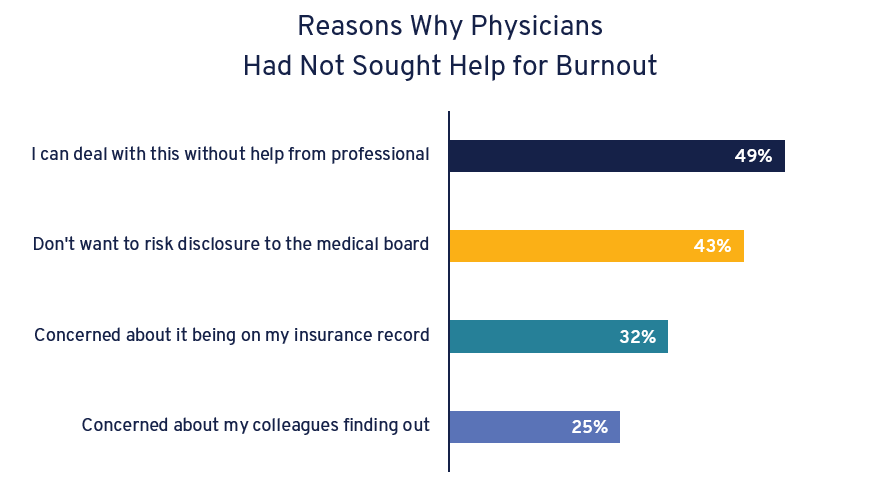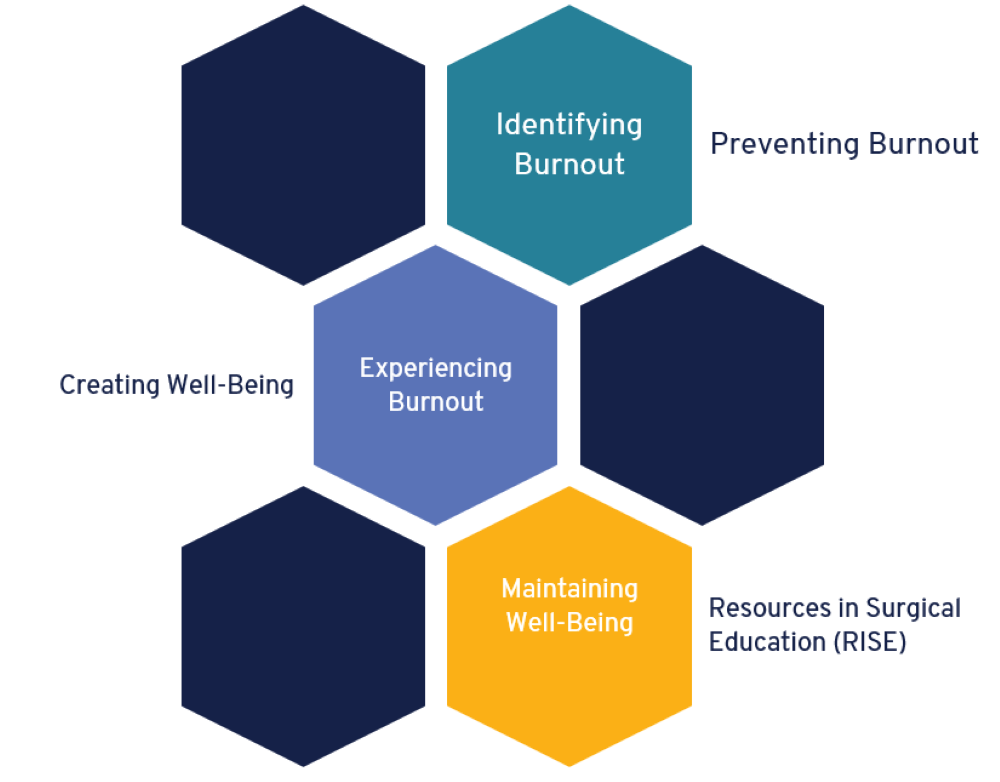Why U.S. Healthcare Isn’t Better At Getting Better
I am convinced more than ever that we need to stop waiting for some external force bigger than ourselves to fix all our problems.
– Sachin H. Jain, Contributor, Forbes Healthcare
5 Dominant Hypotheses in Public Discourse About Why Healthcare Hasn’t Gotten Better:
- How we pay for care
- Our lack of universal coverage
- The fragmented nature of our information systems
- The failure of antitrust enforcement
- The failure of diffusion of information on how to improve
With forces as big as these at play, our minds usually go to advocating for, hoping for, wishing for some bigger, fundamental reform or disruptive event. For every solution—if ever it comes—comes with its own incompleteness, unintended consequences, costs, and added complexities. A new set of problems for us to address. And in each case—we might find ourselves waiting a long time for solutions to emerge.
Who Will Make the System Better?
If we, the physicians, want it to be different, then we need to be the ones who lead it that way. We are who we are waiting for.
If the people in one of the most challenging professions don’t have the ability to lead change—then what will others do without the resources and capability and intelligence behind them?
A few well-intentioned people can make a difference.
Leadership is the act of sometimes sacrificing one’s own personal or institutional interest to advance the greater good.
We must assume this important role as change-leaders in this critical time in the evolution of our profession.
Read or listen to the full Forbes article here.
SCC advocates for and empowers physicians in their careers. Contact us today to learn more.
As Healthcare Organizations Get Bigger, Healthcare Workers Feel Smaller
As healthcare organizations consolidate and get bigger, many healthcare workers are left feeling invisible and unseen.
– Sachin H. Jain, Contributor, Forbes Healthcare
While workload is often blamed for “burnout,” people didn’t become healthcare professionals by not working hard. Rather, it is the nature of the work and how they are treated by healthcare organizations. Dive deep and you’ll see that workers repeatedly point to their invisibility, lack of agency, and the ways in which their needs are ignored as the source of the problem.
One surgeon with whom I spoke said, “We are within an environment that is becoming carcinogenic. There are infinite demands on me with no relief in sight. We are constantly asked for more and no one cares that we have no more to give.”
In simple terms, the leaders of hospitals, health systems, and health plans should make their big (and growing) impersonal institutions feel small again, organizing them into intimate, smaller units where people feel ownership and empowerment.
They should stop referring to everyone who sees a patient generically as a “provider. They should push technologists and regulators to reduce the onerous burden of bureaucratic paperwork and instead maximize every opportunity for clinical workers to interact with patients. And they should ensure that clinicians at every level are key members of their organizations’ leadership teams, involved at every step in determining the future of their organizations.
Moreover, they should remember that the product that they are delivering to patients is, in fact, the people.
Read or listen to the full Forbes article here.
Feeling invisible? Learn how SCC can help by scheduling a complimentary 30 minute conversation today!
How to Tell If a Potential Employer Has a Burnout Culture
by Emily Stark, Becca Carnahan, and Jacqueline Kerr
Summary
How can you identify whether a potential employer has a burnout culture? Will the company support your well-being and productivity? Or will they leave you exhausted and looking for a new job again? The authors offer signals to look for, questions to ask, and ways to evaluate answers during your interview process.
Burnout is often seen as an individual problem. But research has shown that burnout at work is due to systemic negative conditions, such as unequal promotion opportunities, a lack of autonomy or flexibility, feeling like you don’t belong, or a values misalignment, such as a lack of support for working parents.
The guide provides signals to look for, questions to ask, and ways to evaluate answers during the interview process to assess whether a company has a burnout culture in which it treats employees as commodities or whether it has a human-focused, whole-person culture.
The six causes of burnout are identified as –
- Lack of Autonomy
- Lack of Fairness
- Unsustainable Workload
- Lack of Reward
- Lack of Community Support
- Misaligned Values
If you’re struggling with burnout, you might want to seek support to help you develop boundaries, reset, or identify your needs and values before embarking on a job search. When you are ready to apply for a new position, use this guide to help you look for supportive companies, find a good match with your needs and values, and set yourself up for success in your new role.
Read the full Harvard Business Review article here.
ARE YOU EXPERIENCING BURNOUT?
Contact us for a free consultation to explore ways SCC can empower you!
To Address Your Burnout, Identify What’s Causing It
Burnout is a management and organizational issue — not an individual one. Most of the time, it’s triggered by a disconnect between what an employee needs and what their employer is providing. The first step in addressing the problem is figuring out what’s causing it. If you’re feeling burned out, consider which of the following mismatches might be at the core of the issue.
- A workload mismatch often involves high demands and insufficient resources to meet them successfully — for example, not enough time, staff, information, or equipment.
- A control mismatch happens when you don’t have adequate autonomy to do your job well.
- A reward mismatch means that good work is not leading to the appropriate recognition, compensation, or opportunities.
- A community mismatch is most extreme in a socially toxic workplace, where there’s rampant incivility, bullying, or harassment — rather than mutual trust, respect, and support.
- A fairness mismatch involves discrimination and inequitable practices.
- A values mismatch occurs when your ethical and moral compass points in a different direction than your organization’s.
Read the full Harvard Business Review article here.
Are you suffering from burnout? Contact us today to learn how SCC can empower you!
Physician Burnout, Engagement, and Retention Survey
Jackson Physician Search in partnership with Medical Group Management Association (MGMA) October 2022
The results of this October 2022 survey illustrate the importance of focusing on Physician retention and well-being and acknowledging that one size doesn’t fit all. In my experience with working with clients, transparency is the key to many of the challenges facing Physicians and is a significant contributor to burnout. Transparency regarding physician compensation and methodology, wRVU data, administrative duties, invisible work, etc., is crucial to building and maintaining trust between employees and employers.
The lack of trust and transparency manifests in physicians resigning or retiring specifically due to burnout. Consider these statics resulting from the Jackson Physician Search and MGMA Report:
- Before the pandemic and its myriad changes to healthcare, it was commonplace to see 6% to 7% of the physician workforce — approximately 50,000 doctors — change jobs or location.
- MGMA Stat polling from August 2022 finds that four in 10 medical practices (40%) had a physician resign or retire early in the past year due to burnout.
Physician burnout — the long-term, cumulative stress and depersonalization that doctors experience amid growing burdens in the practice of medicine — continues to pose a major threat to a healthcare industry that remains in dire need of clinical leaders.
The World Health Organization (WHO), in its definition of burnout as a syndrome, points to three key components that contribute to chronic stress associated with work:
- Emotional exhaustion, leading to easily becoming irritable or downhearted
- Replacement of usual empathy with cynicism, negativity, and feeling emotionally numb (depersonalization)
- A low sense of professional effectiveness.
What do Physicians want? What is important to providing professional satisfaction in your work?
- 62% Two-way communication with management/administration
- 57% Additional compensation
- 47% Equity in workload
- 45% Reduced administrative burden
- 35% Retention programs
“In this new normal, the demand for a shrinking supply of physicians will persist, making it crucial for practices to limit the damage via concerted efforts to reduce burnout and to strive for a positive work-life balance,” said Tony Stajduhar, president of Jackson Physician Search.
Read the full Jackson Physician Search and MGMA article here
ARE YOU EXPERIENCING BURNOUT? CONTACT US FOR A FREE CONSULTATION TO EXPLORE WAYS SCC CAN EMPOWER YOU.
2022 Medscape Reports: Physician Burnout, Depression, and Suicide
One in ten physicians reported that they have thought about or attempted suicide according to the 2022 Medscape Survey. General surgeons were among the specialist groups with higher rates of suicidal thoughts. According to research, physicians have suicidal thoughts at about twice the rate of the general population. Physician burnout is a major cause of suicidal ideation. As a result, addressing physician suicide requires a deeper understanding of physician burnout.
Physician Burnout
“Burnout can be a vulnerability factor that leads to depression, and depression can make an individual more likely to suffer burnout.”
– Dr. Peter Yellowlees, MBBS, MD
The Top 5 Factors that Contribute to Burnout include:
- Too many bureaucratic tasks
- Lack of respect from administration/employers
- Too many hours at work
- Lack of control/autonomy
- Insufficient compensation/salary
Dr. Yellowlees, chief wellness officer for UC Davis Health and professor of psychiatry at the University of California, also stated that “close and intimate relationships are the single most protective factor for our mental health.” Unfortunately, burnout negatively impacts relationships. This was true in the 2022 Medscape survey, in which 68% of physicians reported that burnout had a negative effect on their relationships.
In order to reduce burnout and depression, the AMA recommends several ways for healthcare organizations to help physicians, such as support groups and team-based care to rebalance workloads.
Does your workplace offer resources to reduce burnout and depression? 58% of physicians reported that either their workplace did not offer a program, or that they did not know if a program was offered. Knowing what resources are available is imperative before and after taking a job.
When asked how to best reduce burnout, physicians prioritized the following:
- More manageable work schedule
- Increased compensation
- Greater respect from administrators/employers, colleagues, or staff
This study also identified reasons why physicians had not sought help for burnout.

Physician Suicide
“Many physicians don’t seek mental health care due to fear of negative consequences in the workplace, including retribution, exclusion, loss of license, or even their job.”
– Gary Price, MD, President of The Physicians Foundation
Sadly, this was the case for Dr. Lorna Breen, who died of suicide in 2020 during the COVID-19 pandemic. Dr. Breen feared losing her medical license if she talked to a professional. Congress passed the Dr. Lorna Breen Health Care Provider Protection Act to prevent physician suicide.
The US Department of Health & Human Services must award grants to facilitate mental health programs for providers as part of the legislation. In addition, they must also establish policy recommendations and conduct campaigns to:
- Improve providers’ mental and behavioral health
- Encourage providers to seek mental health support and assistance
- Remove barriers to such treatment
- Identify best practices to prevent suicide and promote resiliency
At SCC, we advocate, educate, and empower individual physicians. Proactive review of your cultural fit and salary can prevent burnout before it starts. We offer coaching services and compensation analysis to alleviate burnout. Knowledge is power. Know your value. Schedule a free consultation today.
Resources for Physicians Having Suicidal Thoughts
- Physician Support Line
- 888.409.0141
- physiciansupportline.com
National Suicide Prevention Lifeline
- 800.272.8255
- Text: 741741
- suicidepreventionlifeline.org
Sources:
Medscape Physician Burnout & Depression Report 2022: Stress, Anxiety, and Anger
A Tragedy of the Profession: Medscape Physician Suicide Report 2022
Why So Many Women Physicians Are Quitting
Why does practicing medicine take a greater toll on women?
Compared to men, women physicians spend more time per patient, documenting electronic medical records, and handling non-professional responsibilities.
As a result, women physicians have higher rates of burnout and depression and lower rates of professional fulfillment.
These findings also shed light on other differences between female and male physicians in the following:
- Alignment: the relationship and shared values physicians have with organizational leadership
- Resilience: the ability to find meaning in work and the ability to re-charge when away from work
- Intent to stay: the likelihood to remain with the organization three years from now
How can we level the playing field?
Organizations must focus on:
Flexibility to meet both professional and personal demands.
Respect strategies for encouraging inclusive workplace culture.
Equitable Advancement Opportunities and Pay reviewing current and new compensation plans to ensure gender pay equity.
Ask yourself, is your practice a good place for women physicians to work?
SCC is committed to ensuring pay equality for all surgeons. We are passionate about educating female physicians in the business of medicine.
Knowledge is power. Know your value.
Learn about fair market value salary and negotiate your worth.
Contact us for a free consultation today.
Source: Why So Many Women Physicians Are Quitting was written by Jessica Dudley, Sarah McLaughlin, and Thomas H. Lee, and published by the Harvard Business Review.
Tips for Choosing Between Multiple Job Offers
Choosing the right medical practice is difficult. Consider the following when choosing between multiple offers:
1) Define What Really Matters to You
Why are you looking for a new job? What are you looking for in a new position? Consider your wants and needs such as practice setting, practice size, your role within the organization, workplace culture, and location that fit your lifestyle. Understand what really matters to you.
2) Practice Location
3) Culture Fit
4) Practice Philosophy
5) Work/Life Balance
6) Growth Opportunities
Physicians are in high demand and low supply, which gives you leverage. Find the job that meets your personal and professional aspirations.
Read the full Jackson Physician Search article here.
“Whichever direction you decide to go, choosing a role that is professionally rewarding and personally fulfilling will play a big role in your future level of satisfaction.”
SCC is committed to helping surgeons find the right fit.
Contact us today to schedule a free consultation.
ACS Resources for Burnout
Studies have shown that burnout effects mental health and well-being. The American College of Surgeons (ACS) provides resources for surgeons to identify burnout and create and maintain well-being throughout your career.
Surgeon Well-Being Resources

Discover ACS Resources for Surgeons
Are you experiencing burnout at work?
We can help you. Contact us here to learn more.
Physician Burnout, Interrupted
Physician burnout leads to unhappy physicians and poor patient outcomes. This resource will help educate and guide you in identifying methods of preventing physician burnout.
“Burnout is toxic for patients as well as physicians, because it’s associated with loss of empathy, impaired job performance, and increases in medical mistakes”
How to Address Physician Burnout

Autonomy |

Competence |

Relatedness |
| Give doctors flexibility in their schedule to allow for individual styles of practice and patient interaction | Eliminate meaningless metrics and maintain a core of evidence-based measures to allow for clinical judgment
|
Align the systems values with the physicians values who chose their careers out of altruism |
Read the full New England Journal of Medicine article here.
